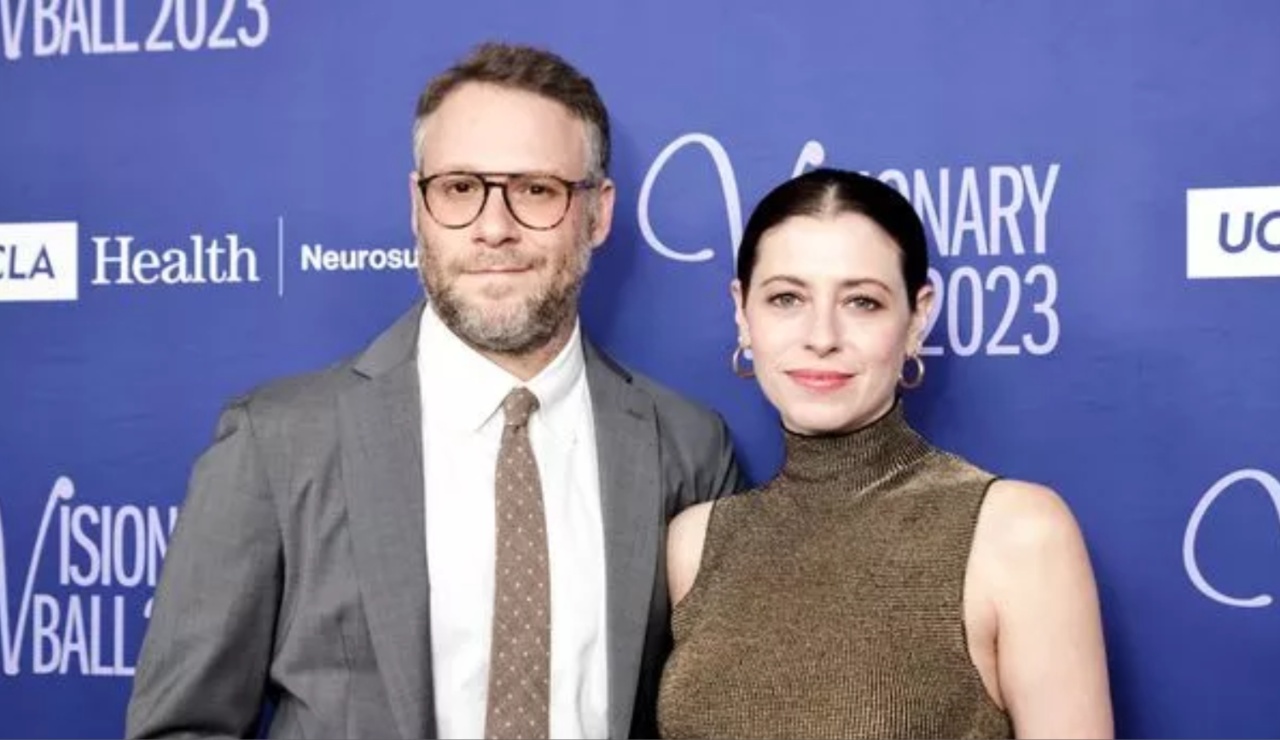“Lauren Miller Rogen’s Candid Revelation about Brain Aneurysm Diagnosis”
Lauren Miller Rogen, the talented actress and wife of renowned comedian Seth Rogen, recently shared her personal journey with a brain aneurysm diagnosis during the UCLA Department of Neurosurgery Visionary Ball on October 11. With a family history of dementia, the 42-year-old recounted her decision to undergo an MRI five years ago, driven by a desire to proactively assess her brain health.
During the event, Lauren disclosed, “They found, of course, this sort of aneurysm in my head,” adding that the discovery was undeniably alarming, given her great-grandmother’s fate. She expressed her concern about potentially mirroring that fate.
Initially, the aneurysm remained small and benign. However, it raised red flags when doctors noticed its growth last year, as reported by the star of ‘For a Good Time, Call…’. She was swiftly connected with UCLA neurosurgeon Dr. Geoffrey Colby, who offered her reassurance and answered her myriad questions during this uncertain period.

Lauren expressed her profound gratitude, saying, “I’m truly endlessly grateful to Dr. Colby, his entire team, and the entire staff at UCLA who guided us through this scary experience that I’m truly grateful to have overcome.” With a touch of humor at the gala, she quipped, “I’m truly thankful that I won’t be dying at this dinner table or any others anytime soon.”
Brain health is a top priority for her husband, Seth Rogen, co-founder of Hilarity for Charity, a non-profit dedicated to supporting those affected by Alzheimer’s disease. The organization was established following the couple’s first-hand experience of Lauren’s mother, Adele Miller, grappling with the condition. Adele sadly passed away at the age of 69 in 2020.
Seth explained the motivation behind their charitable work, stating, “I had done charitable work before, but this was the first time I was contributing to a cause just by sharing what Lauren and I were seeing and experiencing. As painful as it was, it was very easy to talk about during interviews because it was happening to our family. It didn’t require research or memorizing statistics.”
Highlighting the lack of education on brain care from childhood through adulthood, the 41-year-old emphasized the importance of early detection. He remarked, “You can take care of your brain, just like your heart and your lungs. It’s never too early to start.”


